七下Unit4 Finding your way Grammar课件42张
文档属性
| 名称 | 七下Unit4 Finding your way Grammar课件42张 | 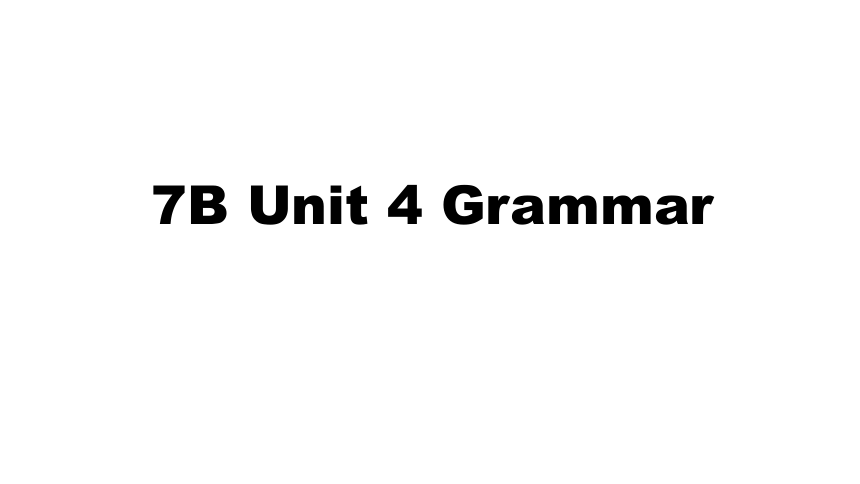 | |
| 格式 | pptx | ||
| 文件大小 | 3.5MB | ||
| 资源类型 | 教案 | ||
| 版本资源 | 牛津译林版 | ||
| 科目 | 英语 | ||
| 更新时间 | 2021-03-16 18:12:18 | ||
图片预览

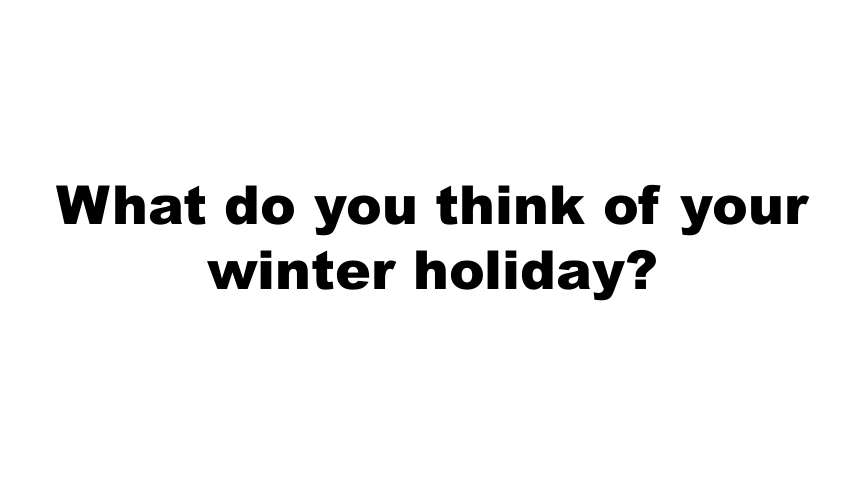

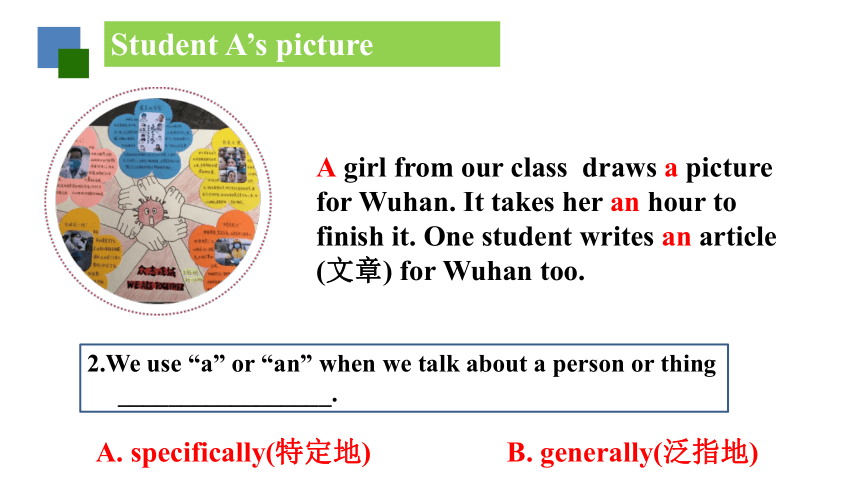
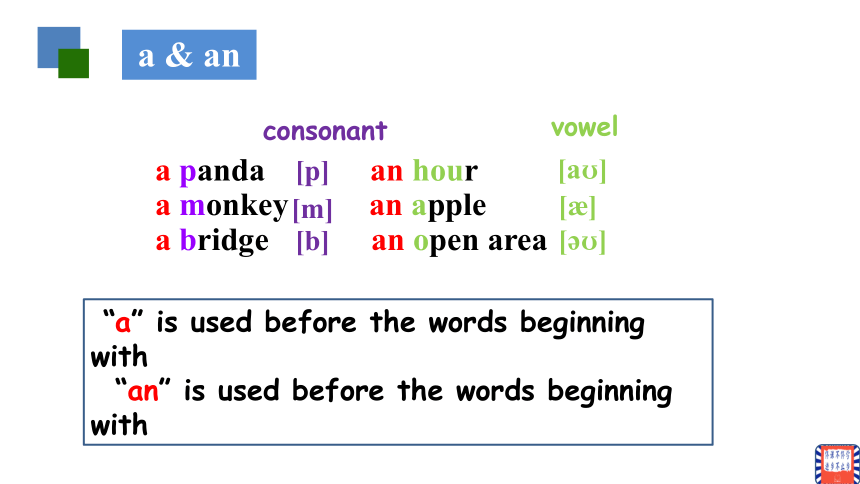
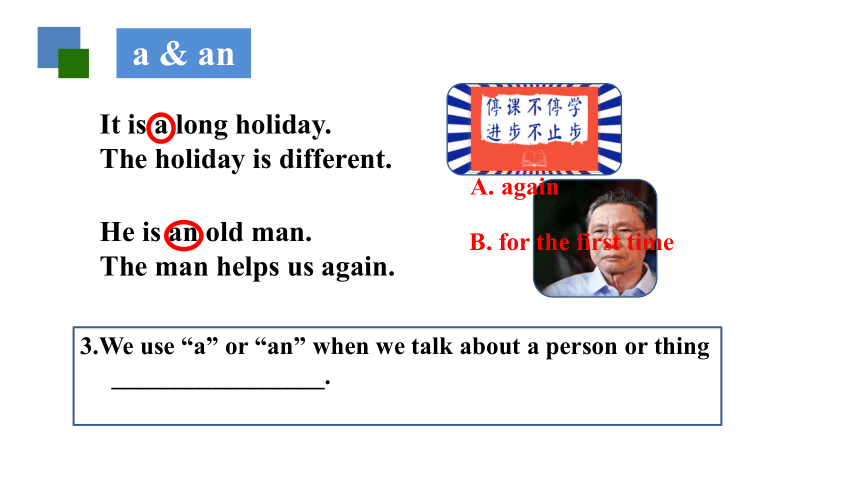
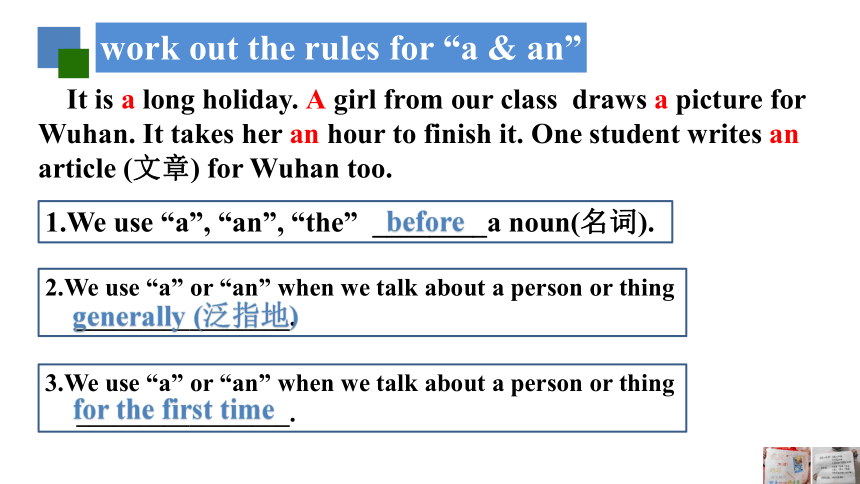
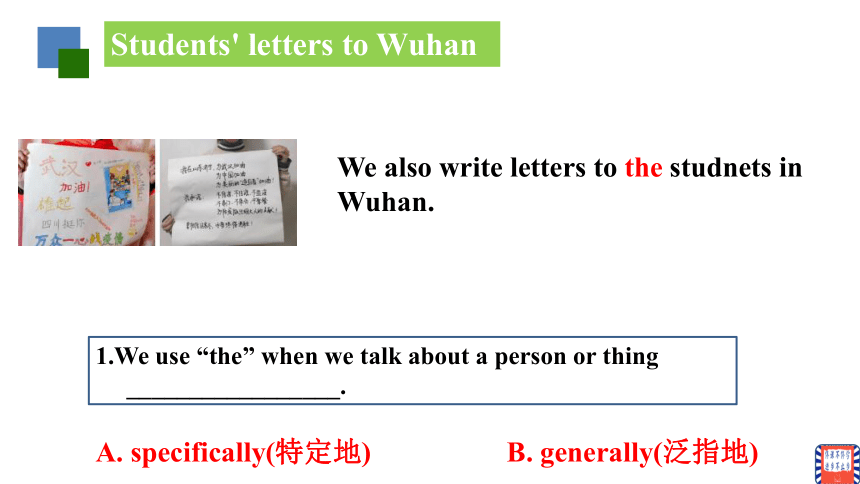
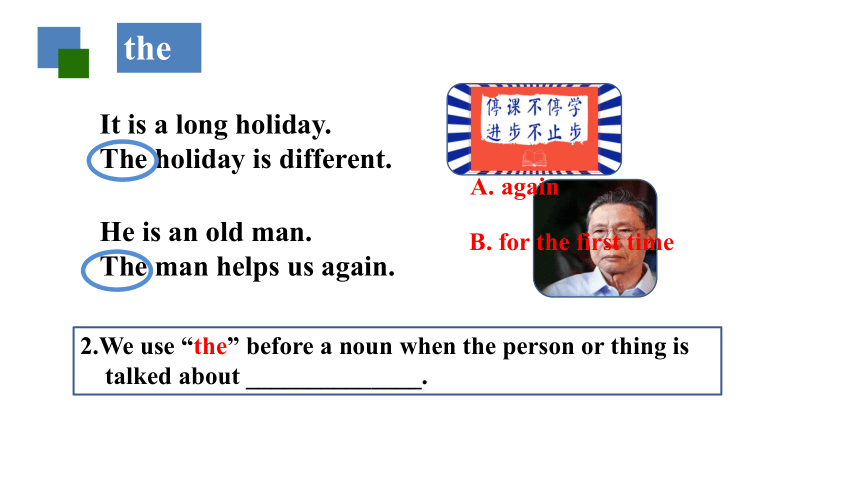

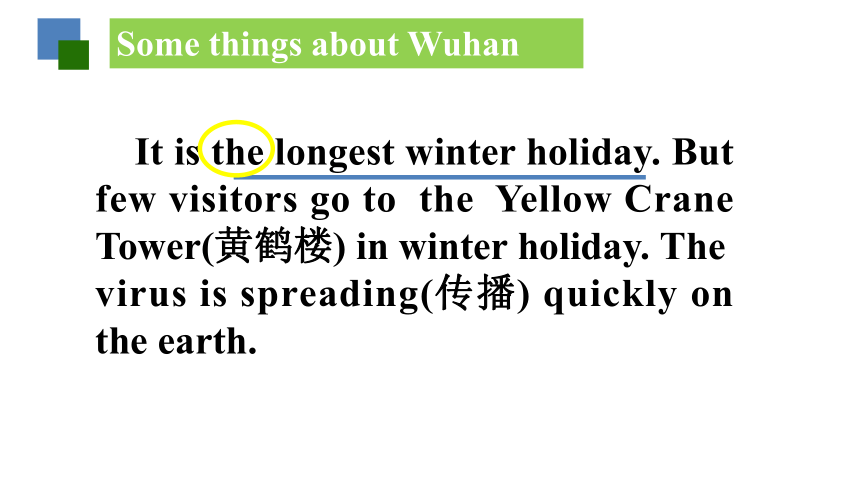
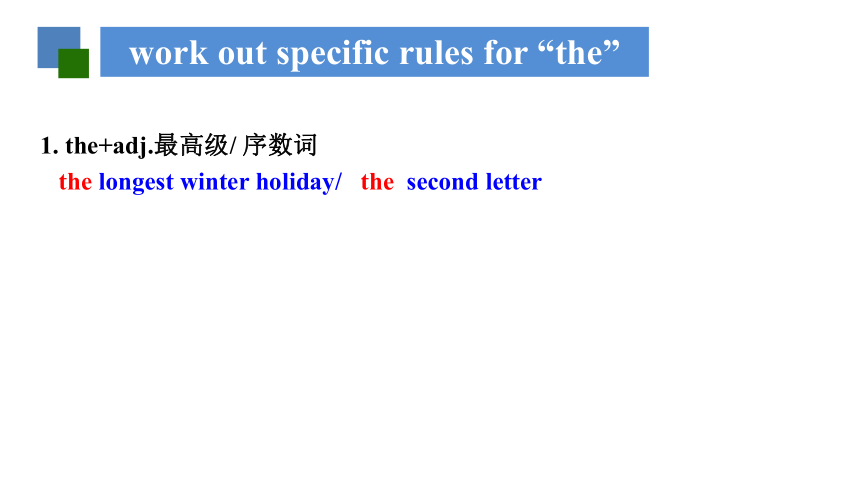
文档简介
7B
Unit
4
Grammar
What
do
you
think
of
your
winter
holiday?
It
is
___
longest
winter
holiday.
Students
in
our
shcool
do
a
lot
of
things
to
Wuhan.
___
girl
from
our
class
draws
___
picture
and
it
takes
her
___
hour
to
finish
it.
One
student
writes
___
article
(文章)
for
Wuhan
too.
We
also
write
letters
to
___
students
in
Wuhan.
We
hope
everyone
can
be
safe
there.
A
the
an
an
the
a
1.We
use
“a”,
“an”,
“the”
________a
noun(名词).
before
articles
冠词
Fill
in
the
blanks
with
“a,
an,
the”
Things
to
do
Student
A’s
picture
A
girl
from
our
class
draws
a
picture
for
Wuhan.
It
takes
her
an
hour
to
finish
it.
One
student
writes
an
article
(文章)
for
Wuhan
too.
2.We
use
“a”
or
“an”
when
we
talk
about
a
person
or
thing
_________________.
A.
specifically(特定地)
B.
generally(泛指地)
a
&
an
a
panda
an
hour
a
monkey
an
apple
a
bridge
an
open
area
“a”
is
used
before
the
words
beginning
with
consonants
(辅音).
“an”
is
used
before
the
words
beginning
with
vowels
(元音).
[p]
[m]
[b]
[a?]
[?]
[??]
consonant
vowel
It
is
a
long
holiday.
The
holiday
is
different.
He
is
an
old
man.
The
man
helps
us
again.
3.We
use
“a”
or
“an”
when
we
talk
about
a
person
or
thing
_________________.
B.
for
the
first
time
A.
again
a
&
an
1.We
use
“a”,
“an”,
“the”
________a
noun(名词).
before
2.We
use
“a”
or
“an”
when
we
talk
about
a
person
or
thing
_________________.
generally
(泛指地)
3.We
use
“a”
or
“an”
when
we
talk
about
a
person
or
thing
_________________.
for
the
first
time
work
out
the
rules
for
“a
&
an”
It
is
a
long
holiday.
A
girl
from
our
class
draws
a
picture
for
Wuhan.
It
takes
her
an
hour
to
finish
it.
One
student
writes
an
article
(文章)
for
Wuhan
too.
Students'
letters
to
Wuhan
We
also
write
letters
to
the
studnets
in
Wuhan.
1.We
use
“the”
when
we
talk
about
a
person
or
thing
_________________.
A.
specifically(特定地)
B.
generally(泛指地)
It
is
a
long
holiday.
The
holiday
is
different.
He
is
an
old
man.
The
man
helps
us
again.
2.We
use
“the”
before
a
noun
when
the
person
or
thing
is
talked
about
______________.
B.
for
the
first
time
A.
again
the
work
out
general
rules
for
“the”
1.We
use
“the”
when
we
talk
about
a
person
or
thing
_________________.
specifically
(特定地)
2.
We
use
“the”
before
a
noun
when
the
person
or
thing
is
talked
about
______________.
again
We
also
write
letters
to
the
studnets
in
Wuhan.
He
is
an
old
man
and
the
man
helps
us
again.
More
It
is
the
longest
winter
holiday.
But
few
visitors
go
to
the
Yellow
Crane
Tower(黄鹤楼)
in
winter
holiday.
The
virus
is
spreading(传播)
quickly
on
the
earth.
Some
things
about
Wuhan
work
out
specific
rules
for
“the”
1.
the+adj.最高级/
序数词
the
longest
winter
holiday/
the
second
letter
It
is
the
longest
winter
holiday.
But
few
visitors
go
to
the
Yellow
Crane
Tower(黄鹤楼)
in
winter
holiday.
The
virus
is
spreading(传播)
quickly
on
the
earth.
Some
things
about
Wuhan
work
out
specific
rules
for
“the”
2.专用名词,惯用语
the
Yellow
Crane
Tower/
the
Great
Wall/
by
the
way/
in
the
end
1.
the+adj.最高级/
序数词
the
longest
winter
holiday/
the
second
letter
It
is
the
longest
winter
holiday.
But
few
visitors
go
to
the
Yellow
Crane
Tower(黄鹤楼)
in
winter
holiday.
The
virus
is
spreading(传播)
quickly
on
the
earth.
Some
things
about
Wuhan
work
out
specific
rules
for
“the”
2.专用名词,惯用语
the
Yellow
Crane
Tower/
the
Great
Wall/
by
the
way/
in
the
end
1.
the+adj.最高级/
序数词
the
longest
winter
holiday/
the
second
letter
3.
独一无二
the
earth,
the
sun,
the
moon
We
know
the
old
are
easy
to
be
infected(感染)
.
Most
people
stay
at
home
but
still
have
fun.
Some
of
them
play
the
piano
every
day
and
others
play
chess.
Some
things
about
Wuhan
3.
+adj.:一类人
+姓:一家人
the
old
老年人
the
Greens
格林一家
work
out
specific
rules
for
“the”
We
know
the
old
are
easy
to
be
infected(感染)
.
Most
people
stay
at
home
but
still
have
fun.
Some
of
them
play
the
piano
every
day
and
others
play
chess.
Some
things
about
Wuhan
3.
+adj.:一类人
+姓:一家人
the
old
老年人
the
Greens
格林一家
work
out
specific
rules
for
“the”
4.
+乐器
play
the
piano
play
the
violin
a
a
The
a
a
an
the
the
the
an
Change
The
Wuhan
Yangtze
River
Bridge
is
over
a
river.
Because
of
the
virus,
there
are
few
boats
under
the
bridge.
over
under
Moving
moment
The
policemen
and
volunteers
stand
below
the
umbrella
to
help
the
community
every
day.
below
above
above
below
Moving
moment
People
live
above
also
encourage(鼓励)
people
live
below
them.
above
below
Moving
moment
You
sit
beside/next
to
each
other.
I'm
in
front
of
you.
Behind
you,
there
are
some
other
teachers.
Now,
we
come
back
to
school
after
a
long
winter
holiday.
Moving
moment
Outside
the
classroom,
there
are
some
buildings.
And
students
inside
here
are
listening
to
me
carefully.
inside
outside
Prepositions
of
place(方位介词)
over
above
under
below
inside
outside
in
front
of
behind
next
to/
beside
In
front
of
Next
to/beside
on
on
in
under
Between
on
Summary
1.
We
use
“a”
or
“an”
when
we
talk
about
a
person
or
thing
_________________.
generally
(泛指地)
2.We
use
“a”
or
“an”
when
we
talk
about
a
person
or
thing
_________________.
for
the
first
time
We
use
“a”,
“an”,
“the”
________a
noun(名词).
before
1.We
use
“the”
when
we
talk
about
a
person
or
thing
_________________.
specifically
(特定地)
2.
We
use
“the”
before
a
noun
when
the
person
or
thing
is
talked
about
______________.
again
Summary
over
above
under
below
inside
outside
in
front
of
behind
next
to/
beside
Emotion
A
friend
in
need
is
a
friend
indeed.
Cherish
your
life
and
move
on.
Homework
1.
Try
to
use
“below”,
“
above”,
“over”,
“on”
“under”,
“in
front
of”
and
“behind”
to
describe
things
around
you.
2.
Finish
the
exercises
below.
Thanks
for
your
listening.
Tom
is
____
18-year-old
boy.
She
often
has
____
lunch
at
____
school.
Our
school
is
____
best
one
in
Xinxiang.
My
sister
plays
____
guitar
on
____
Sundays.
There
is
___
“l”
and
___
“u”
in
the
word
“club”.
I
often
go
to
school
by
___
bus,
but
sometimes
I
ride
___
bike.
____________
orange
is
___
orange.
My
grandpa
is
ill
in
___
hospital.
用适当的冠词或“/”填空
Homework
1.—I
can
see
____
kite
over
there.
—Where’s
____
the
kite?
I
can’t
see
it.
2.
There’s
____
famous
university
in
this
city.
3.
Everyone
has
_____
mouth
and
_____
nose.
4.
Kate
is
_____
English
girl
and
I
am
_____Chinese
girl.
5.
—Who’s
_____
man
over
there?
—
Oh,
he
is
_____
friend
of
my
father’s.
Fill
in
the
blanks
with
“a,
an,
the”
Homework
1.
Helen
sits
in
front
of
me.
I
sit
_____
her.
2.
He
lifted
his
hands
_____
his
head.
3.
Don’t
write
_____
the
line
(横线).
You
should
write
above
it.
4.
There
is
a
lamp
hanging
(悬挂)
_____
my
desk.
5.
Don’t
wait
e
in.
It
is
so
cold.
Homework
用适当的介词填空
Student
C’s
life
learn
to
cook
lunch
learn
English
by
watching
videos
clean
my
room
every
day
play
chess
with
my
father
chat
with
a
relative
living
in
Japan
go
to
the
book
shop
by
bus
play
football
at
weekends
the
的用法
5.
乐器名词前
play
the
piano,
play
the
violin,
play
the
guitar
6.
世界上独一无二的事物前
the
sun,
the
moon,
the
earth
7.
指上文提到过的人或事,或特定的人或事。
He
is
a
hero.
The
hero
protects
us
again.
The
book
I
read
is
interesting.
零冠词的情况
4.
_______前
My
father
has
breakfast
at
home.
_______名词前
We
can’t
live
without
water.
2.
名词前已有限定词时,如
this,
that,
every,
any,
his,
her,
_________等
It
is
Tom’s
book.
__________
、打牌、运动前
He
loves
playing
chess
and
football.
名词所有格
不可数
球类、下棋
三餐
不用冠词的情况
8.
人名、地名、_______前
I
come
from
China.
5.
表示_______的名词前
I
like
art
and
PE.
6.
星期、_______、月份、季节、节日前
Today
is
March
16th.
7.
_______或头衔前
Doctor
Li
is
very
kind.
9.
用于______词组中
He
goes
to
school
by
bike
.
学科
日期
国家
固定
称号
1.We
live
on
___third
floor
of
the
tall
building.
2.____Whites
are
preparing
for
the
coming
Christmas.
3.
Halloween
comes
in
____
autumn.
4.____earth
goes
around
____sun.
5.
We
often
have
_____
bread
and
milk
for
_____breakfast.
The
the
the
The
序数词前
the+姓氏复数,表示某一家人
世界上独一无二的事物
季节前不加冠词
不可数名词;三餐前不加冠词
Exercises
6.
______HK
Disneyland
is
really
wonderful.
7.
My
cousin,
Amy,
likes
playing
____violin.
8.
Jimmy
is
interested
in
____
History.
9.
____rich
should
try
their
best
to
help
____
poor.
10.
By
_____
way,
do
you
know
the
news
about
him?
the
The
the
the加形容词,表示某一类人
固定词组
学科前不加冠词
the
乐器前
地名前不加冠词
Unit
4
Grammar
What
do
you
think
of
your
winter
holiday?
It
is
___
longest
winter
holiday.
Students
in
our
shcool
do
a
lot
of
things
to
Wuhan.
___
girl
from
our
class
draws
___
picture
and
it
takes
her
___
hour
to
finish
it.
One
student
writes
___
article
(文章)
for
Wuhan
too.
We
also
write
letters
to
___
students
in
Wuhan.
We
hope
everyone
can
be
safe
there.
A
the
an
an
the
a
1.We
use
“a”,
“an”,
“the”
________a
noun(名词).
before
articles
冠词
Fill
in
the
blanks
with
“a,
an,
the”
Things
to
do
Student
A’s
picture
A
girl
from
our
class
draws
a
picture
for
Wuhan.
It
takes
her
an
hour
to
finish
it.
One
student
writes
an
article
(文章)
for
Wuhan
too.
2.We
use
“a”
or
“an”
when
we
talk
about
a
person
or
thing
_________________.
A.
specifically(特定地)
B.
generally(泛指地)
a
&
an
a
panda
an
hour
a
monkey
an
apple
a
bridge
an
open
area
“a”
is
used
before
the
words
beginning
with
consonants
(辅音).
“an”
is
used
before
the
words
beginning
with
vowels
(元音).
[p]
[m]
[b]
[a?]
[?]
[??]
consonant
vowel
It
is
a
long
holiday.
The
holiday
is
different.
He
is
an
old
man.
The
man
helps
us
again.
3.We
use
“a”
or
“an”
when
we
talk
about
a
person
or
thing
_________________.
B.
for
the
first
time
A.
again
a
&
an
1.We
use
“a”,
“an”,
“the”
________a
noun(名词).
before
2.We
use
“a”
or
“an”
when
we
talk
about
a
person
or
thing
_________________.
generally
(泛指地)
3.We
use
“a”
or
“an”
when
we
talk
about
a
person
or
thing
_________________.
for
the
first
time
work
out
the
rules
for
“a
&
an”
It
is
a
long
holiday.
A
girl
from
our
class
draws
a
picture
for
Wuhan.
It
takes
her
an
hour
to
finish
it.
One
student
writes
an
article
(文章)
for
Wuhan
too.
Students'
letters
to
Wuhan
We
also
write
letters
to
the
studnets
in
Wuhan.
1.We
use
“the”
when
we
talk
about
a
person
or
thing
_________________.
A.
specifically(特定地)
B.
generally(泛指地)
It
is
a
long
holiday.
The
holiday
is
different.
He
is
an
old
man.
The
man
helps
us
again.
2.We
use
“the”
before
a
noun
when
the
person
or
thing
is
talked
about
______________.
B.
for
the
first
time
A.
again
the
work
out
general
rules
for
“the”
1.We
use
“the”
when
we
talk
about
a
person
or
thing
_________________.
specifically
(特定地)
2.
We
use
“the”
before
a
noun
when
the
person
or
thing
is
talked
about
______________.
again
We
also
write
letters
to
the
studnets
in
Wuhan.
He
is
an
old
man
and
the
man
helps
us
again.
More
It
is
the
longest
winter
holiday.
But
few
visitors
go
to
the
Yellow
Crane
Tower(黄鹤楼)
in
winter
holiday.
The
virus
is
spreading(传播)
quickly
on
the
earth.
Some
things
about
Wuhan
work
out
specific
rules
for
“the”
1.
the+adj.最高级/
序数词
the
longest
winter
holiday/
the
second
letter
It
is
the
longest
winter
holiday.
But
few
visitors
go
to
the
Yellow
Crane
Tower(黄鹤楼)
in
winter
holiday.
The
virus
is
spreading(传播)
quickly
on
the
earth.
Some
things
about
Wuhan
work
out
specific
rules
for
“the”
2.专用名词,惯用语
the
Yellow
Crane
Tower/
the
Great
Wall/
by
the
way/
in
the
end
1.
the+adj.最高级/
序数词
the
longest
winter
holiday/
the
second
letter
It
is
the
longest
winter
holiday.
But
few
visitors
go
to
the
Yellow
Crane
Tower(黄鹤楼)
in
winter
holiday.
The
virus
is
spreading(传播)
quickly
on
the
earth.
Some
things
about
Wuhan
work
out
specific
rules
for
“the”
2.专用名词,惯用语
the
Yellow
Crane
Tower/
the
Great
Wall/
by
the
way/
in
the
end
1.
the+adj.最高级/
序数词
the
longest
winter
holiday/
the
second
letter
3.
独一无二
the
earth,
the
sun,
the
moon
We
know
the
old
are
easy
to
be
infected(感染)
.
Most
people
stay
at
home
but
still
have
fun.
Some
of
them
play
the
piano
every
day
and
others
play
chess.
Some
things
about
Wuhan
3.
+adj.:一类人
+姓:一家人
the
old
老年人
the
Greens
格林一家
work
out
specific
rules
for
“the”
We
know
the
old
are
easy
to
be
infected(感染)
.
Most
people
stay
at
home
but
still
have
fun.
Some
of
them
play
the
piano
every
day
and
others
play
chess.
Some
things
about
Wuhan
3.
+adj.:一类人
+姓:一家人
the
old
老年人
the
Greens
格林一家
work
out
specific
rules
for
“the”
4.
+乐器
play
the
piano
play
the
violin
a
a
The
a
a
an
the
the
the
an
Change
The
Wuhan
Yangtze
River
Bridge
is
over
a
river.
Because
of
the
virus,
there
are
few
boats
under
the
bridge.
over
under
Moving
moment
The
policemen
and
volunteers
stand
below
the
umbrella
to
help
the
community
every
day.
below
above
above
below
Moving
moment
People
live
above
also
encourage(鼓励)
people
live
below
them.
above
below
Moving
moment
You
sit
beside/next
to
each
other.
I'm
in
front
of
you.
Behind
you,
there
are
some
other
teachers.
Now,
we
come
back
to
school
after
a
long
winter
holiday.
Moving
moment
Outside
the
classroom,
there
are
some
buildings.
And
students
inside
here
are
listening
to
me
carefully.
inside
outside
Prepositions
of
place(方位介词)
over
above
under
below
inside
outside
in
front
of
behind
next
to/
beside
In
front
of
Next
to/beside
on
on
in
under
Between
on
Summary
1.
We
use
“a”
or
“an”
when
we
talk
about
a
person
or
thing
_________________.
generally
(泛指地)
2.We
use
“a”
or
“an”
when
we
talk
about
a
person
or
thing
_________________.
for
the
first
time
We
use
“a”,
“an”,
“the”
________a
noun(名词).
before
1.We
use
“the”
when
we
talk
about
a
person
or
thing
_________________.
specifically
(特定地)
2.
We
use
“the”
before
a
noun
when
the
person
or
thing
is
talked
about
______________.
again
Summary
over
above
under
below
inside
outside
in
front
of
behind
next
to/
beside
Emotion
A
friend
in
need
is
a
friend
indeed.
Cherish
your
life
and
move
on.
Homework
1.
Try
to
use
“below”,
“
above”,
“over”,
“on”
“under”,
“in
front
of”
and
“behind”
to
describe
things
around
you.
2.
Finish
the
exercises
below.
Thanks
for
your
listening.
Tom
is
____
18-year-old
boy.
She
often
has
____
lunch
at
____
school.
Our
school
is
____
best
one
in
Xinxiang.
My
sister
plays
____
guitar
on
____
Sundays.
There
is
___
“l”
and
___
“u”
in
the
word
“club”.
I
often
go
to
school
by
___
bus,
but
sometimes
I
ride
___
bike.
____________
orange
is
___
orange.
My
grandpa
is
ill
in
___
hospital.
用适当的冠词或“/”填空
Homework
1.—I
can
see
____
kite
over
there.
—Where’s
____
the
kite?
I
can’t
see
it.
2.
There’s
____
famous
university
in
this
city.
3.
Everyone
has
_____
mouth
and
_____
nose.
4.
Kate
is
_____
English
girl
and
I
am
_____Chinese
girl.
5.
—Who’s
_____
man
over
there?
—
Oh,
he
is
_____
friend
of
my
father’s.
Fill
in
the
blanks
with
“a,
an,
the”
Homework
1.
Helen
sits
in
front
of
me.
I
sit
_____
her.
2.
He
lifted
his
hands
_____
his
head.
3.
Don’t
write
_____
the
line
(横线).
You
should
write
above
it.
4.
There
is
a
lamp
hanging
(悬挂)
_____
my
desk.
5.
Don’t
wait
e
in.
It
is
so
cold.
Homework
用适当的介词填空
Student
C’s
life
learn
to
cook
lunch
learn
English
by
watching
videos
clean
my
room
every
day
play
chess
with
my
father
chat
with
a
relative
living
in
Japan
go
to
the
book
shop
by
bus
play
football
at
weekends
the
的用法
5.
乐器名词前
play
the
piano,
play
the
violin,
play
the
guitar
6.
世界上独一无二的事物前
the
sun,
the
moon,
the
earth
7.
指上文提到过的人或事,或特定的人或事。
He
is
a
hero.
The
hero
protects
us
again.
The
book
I
read
is
interesting.
零冠词的情况
4.
_______前
My
father
has
breakfast
at
home.
_______名词前
We
can’t
live
without
water.
2.
名词前已有限定词时,如
this,
that,
every,
any,
his,
her,
_________等
It
is
Tom’s
book.
__________
、打牌、运动前
He
loves
playing
chess
and
football.
名词所有格
不可数
球类、下棋
三餐
不用冠词的情况
8.
人名、地名、_______前
I
come
from
China.
5.
表示_______的名词前
I
like
art
and
PE.
6.
星期、_______、月份、季节、节日前
Today
is
March
16th.
7.
_______或头衔前
Doctor
Li
is
very
kind.
9.
用于______词组中
He
goes
to
school
by
bike
.
学科
日期
国家
固定
称号
1.We
live
on
___third
floor
of
the
tall
building.
2.____Whites
are
preparing
for
the
coming
Christmas.
3.
Halloween
comes
in
____
autumn.
4.____earth
goes
around
____sun.
5.
We
often
have
_____
bread
and
milk
for
_____breakfast.
The
the
the
The
序数词前
the+姓氏复数,表示某一家人
世界上独一无二的事物
季节前不加冠词
不可数名词;三餐前不加冠词
Exercises
6.
______HK
Disneyland
is
really
wonderful.
7.
My
cousin,
Amy,
likes
playing
____violin.
8.
Jimmy
is
interested
in
____
History.
9.
____rich
should
try
their
best
to
help
____
poor.
10.
By
_____
way,
do
you
know
the
news
about
him?
the
The
the
the加形容词,表示某一类人
固定词组
学科前不加冠词
the
乐器前
地名前不加冠词
